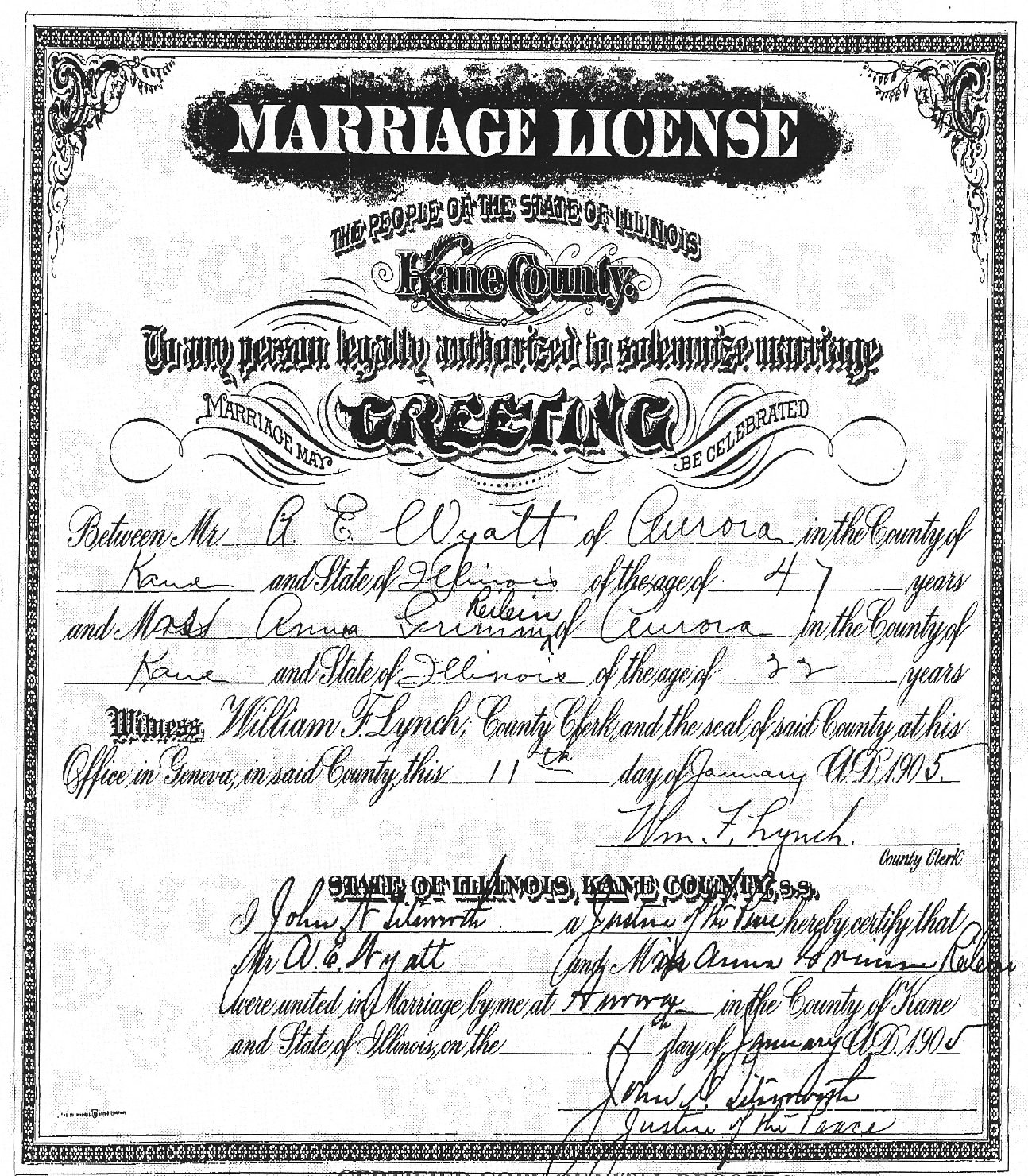Family Stories Collection: This special collection contains a selection of family history stories submitted by our readers. Originally published Mar 13, 2013.
Okay, February is over. Enough with the sentimental love stories! Now for some tales of love gone very, very wrong.
When researching the ancestry of my sister-in-law Susie, I came across the stories of two sisters—Anna and Eva Grimm. Anna was Susie’s great-grandmother (at least on paper!) and Eva was her infamous sister—and both of their stories fascinate me. I’ll start with Anna.
Anna was married young. Just how young is part of the mystery… Her birthdate/age seem to “drift” over time. In 1905, she claimed to be born in 1883. In 1910, she moved it forward to 1885. By 1920, it was 1886, and from 1930 until her death, the records show 1889. So she either lied about her age early in life to appear older—or she lied about her age later in life to appear younger. With the 1890 census having been destroyed in a fire, and her 1900 census record nowhere to be found, I got no help there. And there were no statewide birth certificates in Illinois until 1916, nor could one be located in the county where she claimed to be born.

If the age and birthdate she gave later in life is to be believed, that would have made her just thirteen when she had a baby boy, Arthur, in 1903. Is that even possible? At any rate, two years later, in 1905, she and the father of the child were married. On her marriage certificate, she gives her age as 22 and says it is her second marriage. Lots of things don’t add up here.
Her new husband Adolph (A.E.) Wyatt, a local restaurateur, was much older—he was 47 when they married. What drew them together will probably never be known, as anyone involved is long dead, and no family papers have been found which could shed any light.
The marriage didn’t last. By 1915 they were divorced, when Adolph died at age 57 from bleeding ulcers. Anna was remarried in July 1916, to a man named Charles Nelson. In October 1916 a son named Karl comes into the picture—but I’m not sure if he was his, hers, or theirs. In the 1920 census Karl is listed as Charles’ son, but in 1930 he is listed as Charles’ adopted son.
Anna’s marriage to Charles may not have been a bed of roses; the 1940 census shows him as a prisoner at the Kane County Jail. In 1942 Charles was a free man—but on his WWII draft card, he was quite vague about his employment status, and he lists his son Karl as his next of kin, not his wife. Anna died in 1946 and Charles in 1948, and they are buried together at a local cemetery. I wish I knew more about her life.
I also wish I knew more about her son Arthur (if indeed he is her son). The unfortunate boy was left without parents at thirteen, after his mother left and his father died. Incredibly, no one seems to know who raised him after that; in his later life, my sister-in-law says, he refused to talk about it. Our best guess is that an older nephew of his father took him in, a young man who lived with the family for a time and later lived in a local boarding house.
Fortunately, the boy’s adult life turned out much better than his youth, and my sister-in-law has fond memories of her beloved grandfather, who died many years ago. I hope someday to have more answers for her about her grandfather’s early life and his mysterious mother—but for now, this will have to do.

And “all tea and roses” is new to me……
“Crumbs?” I love that! I wish I was a UK-er so I could use it!
Yes, awful tale… My sister-in-law always wondered why her grandpa would never talk about his childhood, and once I started researching it, we could understand why! He died about 30 years ago. He had a nice wife and two good sons after he grew up, but his wife died in her 50s and he never really got over that. So it wasn’t all tea and roses in his adulthood either.
Crumbs! What an awful story.